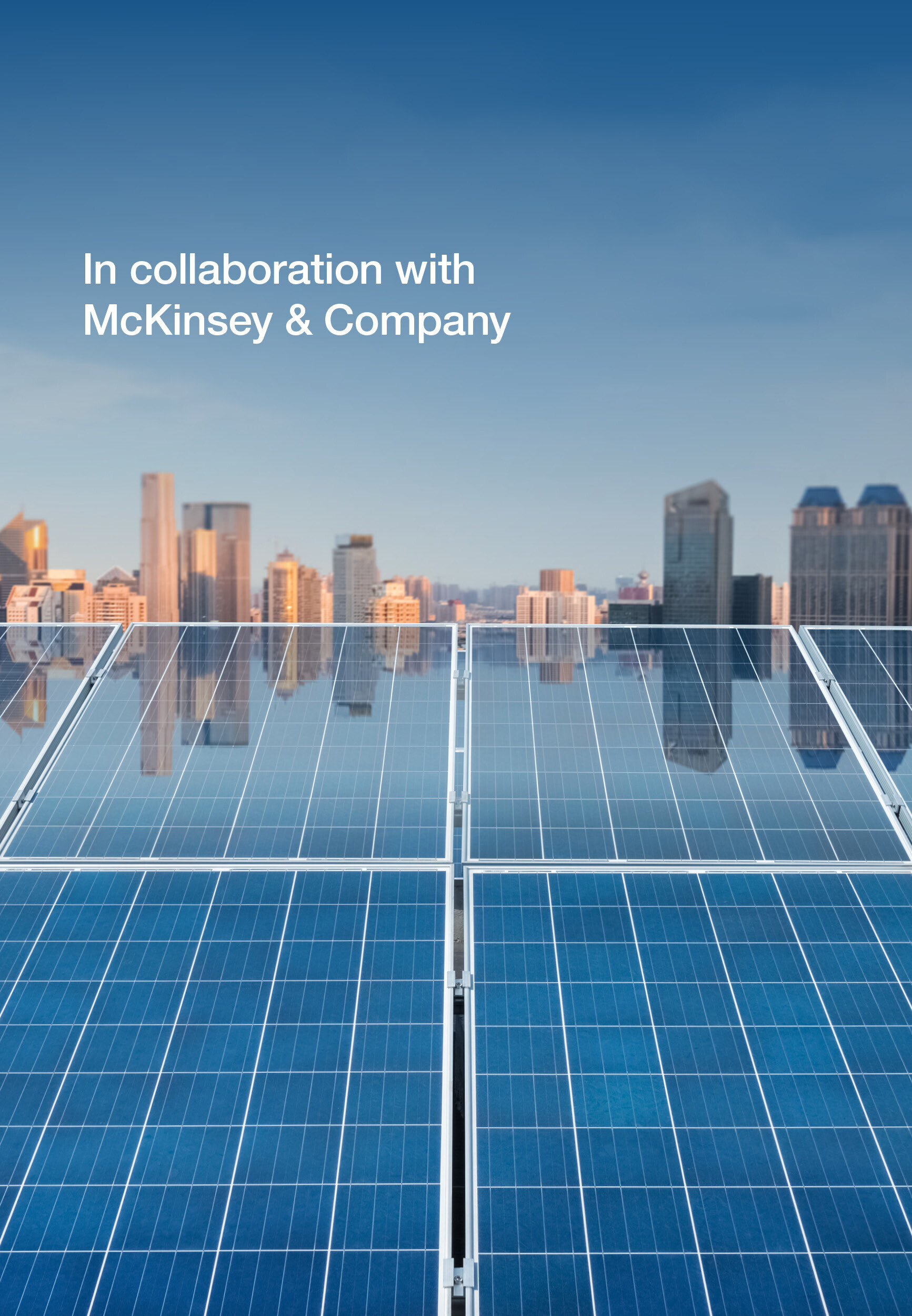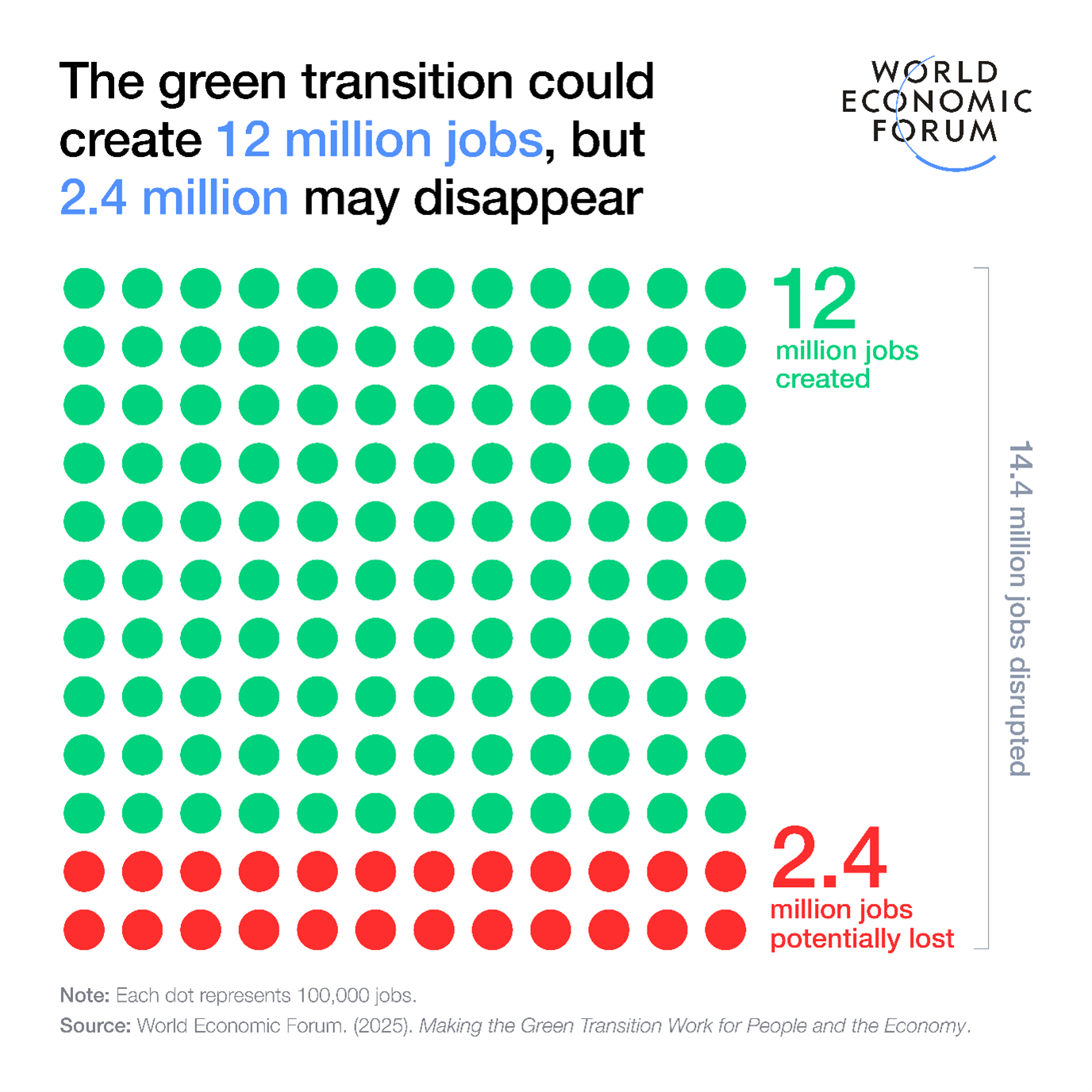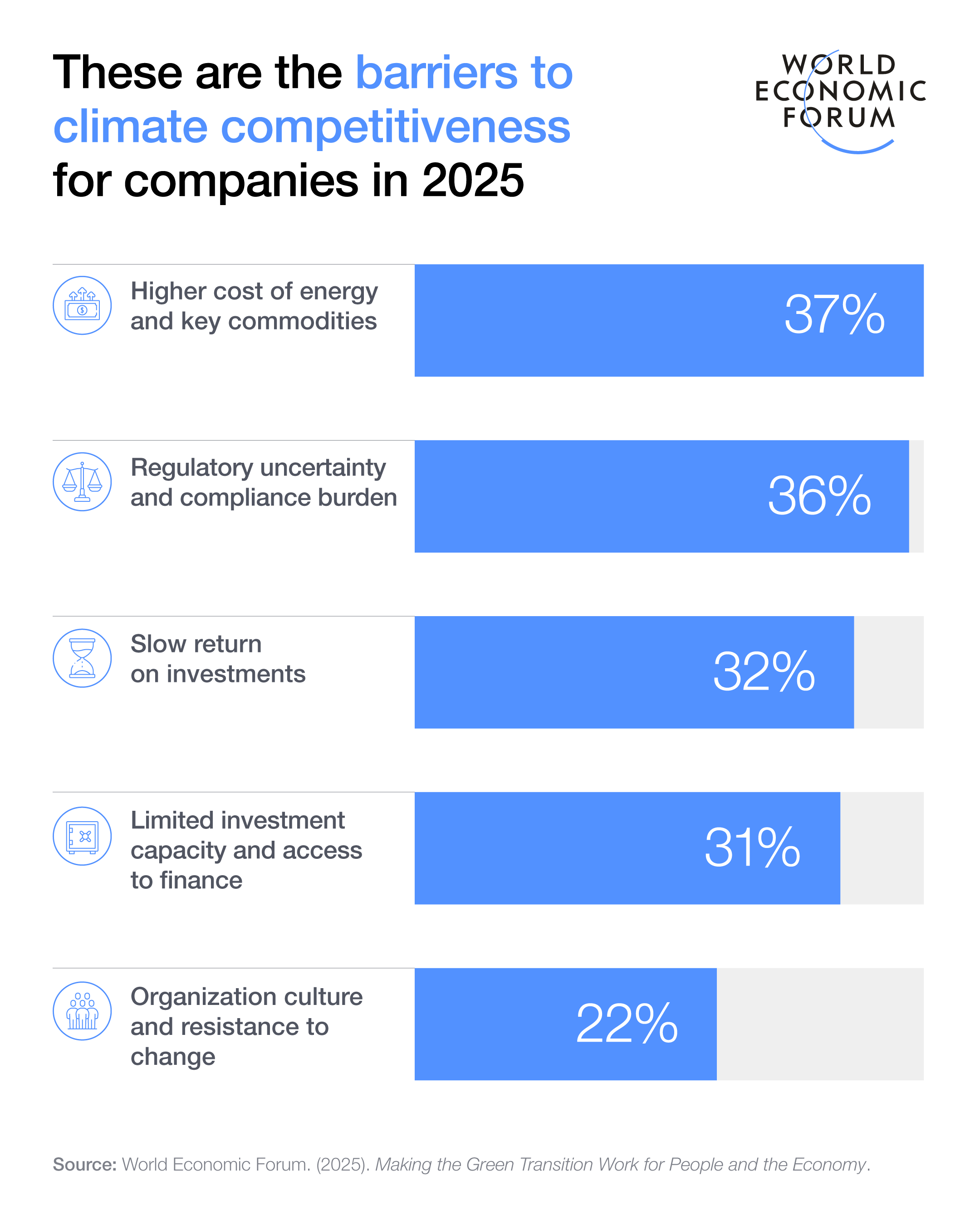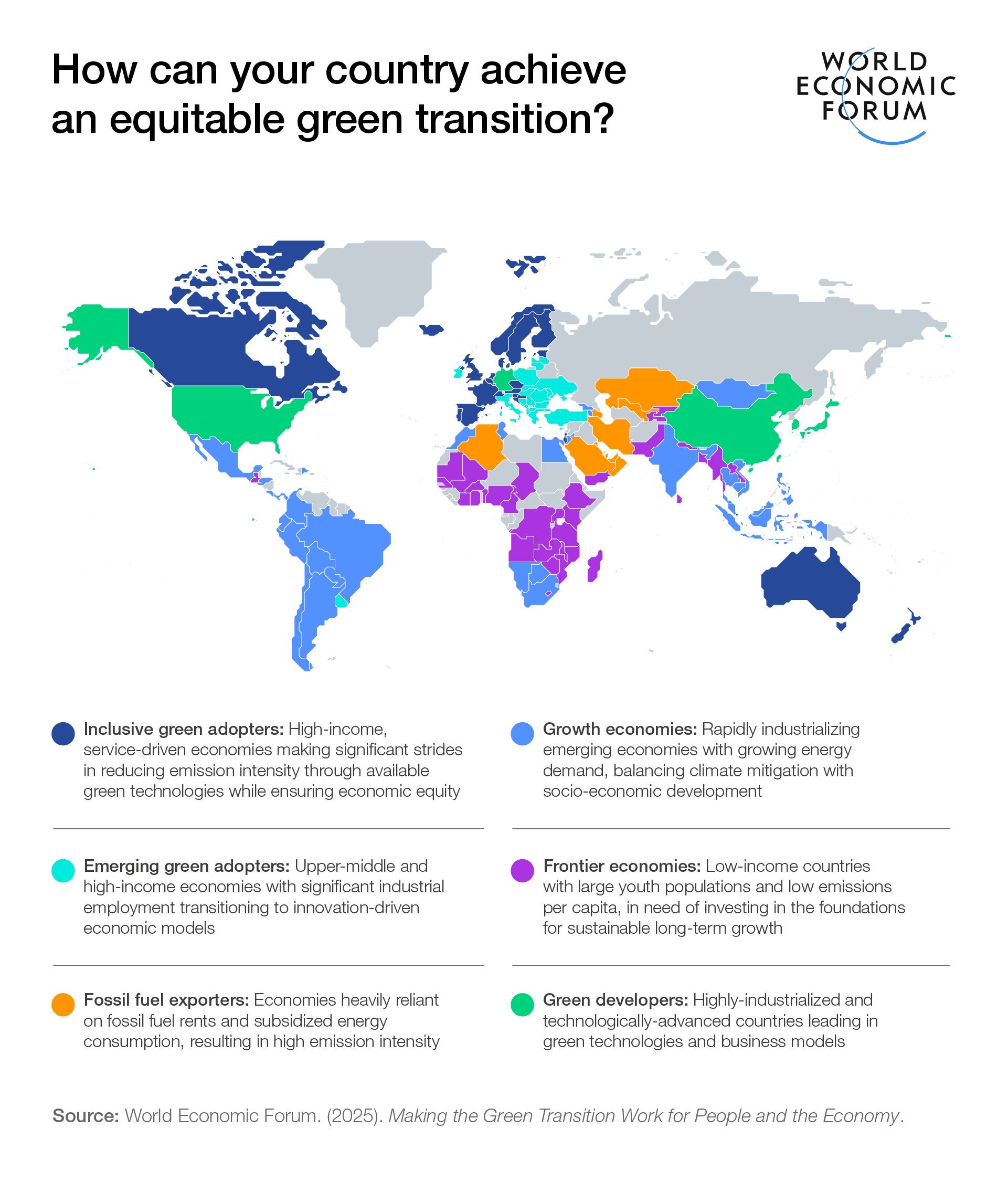Making the Green Transition Work for People and the Economy

As the global economy shifts under mounting inflation, fractured supply chains and rising inequality, the pace of climate action faces new pressures. The World Economic Forum’s Executive Opinion Survey of 11,000 businesses found that 37% consider higher energy and commodity costs as barriers to competitive green business models, while more than half worry about affordability for consumers – warning that without economic feasibility and social alignment, climate ambition may falter.
As the global economy shifts under mounting inflation, fractured supply chains and rising inequality, the pace of climate action faces new pressures. The World Economic Forum’s Executive Opinion Survey of 11,000 businesses found that 37% consider higher energy and commodity costs as barriers to competitive green business models, while more than half worry about affordability for consumers – warning that without economic feasibility and social alignment, climate ambition may falter.
Written by the World Economic Forum in collaboration with McKinsey & Company, Making the Green Transition Work for People and the Economy explores how to align climate action with positive socioeconomic outcomes. It presents a framework for integrating socioeconomic factors into corporate transition plans and identifies six archetypes of national transition pathways, reflecting diverse challenges and opportunities across economies.
Drawing on case studies from SSE, Maersk and Vale, the report shows how companies can embed equity and resilience into their transition strategies – helping ensure that the green transition drives shared prosperity, not divided progress.


